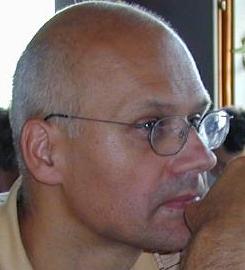Workshop on: QUANTUM INFORMATION AND FOUNDATIONS OF QUANTUM MECHANICS
Quantum Mechanics: Axiomatics and connections with Computing and Information Theory
Multiple observations of quantum systems
>PRESENTATION: Vladimír Buzek has graduated at the Moscow State University (both MSc and PhD). Presently he is a head of the Research Center for Quantum Information at the Institute of Physics, Slovak Academy of Sciences. His research interests are focused on theoretical quantum optics and quantum information science. Within the field of quantum information he has been working on quantum cloning, quantum secret sharing, programmable quantum processors, quantum state and process estimation, etc. He is an author and co-author of more than 200 papers. He was visiting professor at the Imperial College London (UK), National University of Ireland, Maynooth (Ireland), University of Ulm (Germany), and in SOKEN (Japan). He is the president of the Learned society of the Slovak Academy of Sciences.
